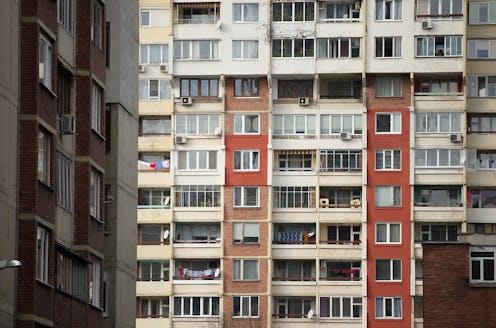News
The World’s Easiest Fix for Homelessness
The funny thing about giving homeless people homes is that it tends to make them not homeless anymore. Utah has stumbled upon this solution for homelessness — and it’s so simple, so obvious, that it just might work. The answer? Put a roof over their heads. For free.
The state came to this conclusion by looking at two numbers: $16,670, or the amount spent on E.R. visits and jail stays for each homeless person; and $11,000, the amount spent on what it would take to outfit someone with an apartment and social caseworker for a year.
So they went with the cheaper apartment option: The state’s been giving homeless people flats with zero strings attached since 2005, along with social workers to help them secure employment and job skills so that they can eventually become self-sufficient. As Slate points out, it was sort of an insurance plan: Spend money now, save it in the long term. If they don’t become independent, no big: They get to keep the flat anyway.
So, what’s the success rate? Utah’s dropped its homelessness rate by 78 percent, gotten 2,000 people of the streets, and should have a roof over everyone’s head by next year.
Other areas are thinking about starting up the program, especially since a 2009 report called “Homes Not Handcuffs” was released by the National Law Center on Homelessness & Poverty and the National Coalition for the Homeless. The organizations used 2004 data to make exactly the same point Utah made: It’s cheaper to give homeless people homes instead of, say, jailing them. Casper, Wyoming, is looking to start a program based on Utah’s after it saw its homeless population increase twofold in three years.
It should be noted that all this is happening in a state that isn’t exactly known for being the most liberal (same-sex couples still aren’t allowed to get married, hello). As Nation of Change points out:
Republicans in Congress would probably have required the homeless to take a drug test before getting an apartment, denied apartments to homeless people with criminal records, and evicted those who failed to become self-sufficient after five years or so. But Utah’s results show that even conservative states can solve problems like homelessness with decidedly progressive solutions.
Of course other states have tried equally creative methods of fixing homelessness: Hawaiian state rep Tom Bower (D) simply smashed homeless people’s shopping carts with a sledgehammer. Didn’t really fix anything, though.
